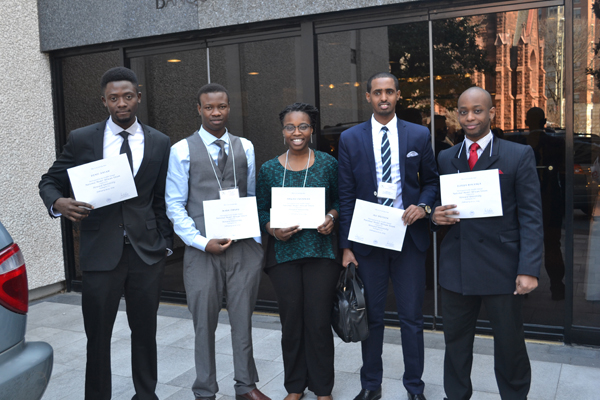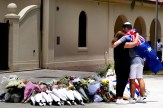The leader in the room

Elikya Bokanga, SSH’16, showcased award-winning diplomatic acumen and strong management skills at the 12th Annual National Model African Union Conference in Washington, D.C. last month.
As Zambia’s representative on the Technical Committee on Regional Economic Communities, he ended a quarrelsome debate over a proposal to establish a uniform African currency before it divided the group. The committee chair—a fellow student—responded by rewarding him with the team’s lone leadership award.
“I motioned to use the amendment to alter the language of the proposal, thus resolving the biggest point of contention,” said Bokanga, a third-year international affairs major from Nairobi, Kenya. “The committee chair most likely considered it the first display of leadership in the room and gave me the credit.”
Bokanga was one of five Northeastern students—and one of hundreds of undergraduates from more than 40 of the nation’s colleges and universities—who participated in the four-day event. At the conference, each student team represented a pre-assigned member state of the African Union, which was established in 2002. The proceedings mirrored those of the AU, with students sitting on committees and discussing, debating, and writing resolutions on today’s most pressing issues in Africa.
The Northeastern students spent seven weeks preparing for the conference in a spring semester course taught by Kwamina Panford, an associate professor of African American Studies in the College of Social Sciences and Humanities. It was not uncommon for them to spend several hours per week reading policy statements, conducting interviews, and doing independent research on topics ranging from energy and economic development to democracy and political crises in places like Mali, Somalia, and the South Sudan.
The lessons learned in class and at the conference fell into two categories: the personal and the political. “Students learn a lot about themselves, team work, and how they perceive Africa,” said Panford, an African citizen from Ghana. “They also learn how constraining politics, diplomacy, international relations, and governing countries can be.”
Abigail Oyeniran, BHS’17, represented Zambia on the executive council. She noted that her experience reinforced her desire to be part of Africa’s ascent to global prominence, saying, “I am very passionate about Africa and want to see it reach its potential.” As a case in point, the third-year physical therapy major hopes to work on co-op at a health clinic or hospital in Nigeria, her family’s home country.
“The Model AU is not only about building resumes,” she said. “It is also about creating real change in the lives of those who need it the most. Although this requires much preparation and unwavering dedication, I plan to do more of this in the future.”
Added Bokanga: “It’s important that people start thinking about Africa as more than a poor place with civil wars. There is far more to it than that.”





